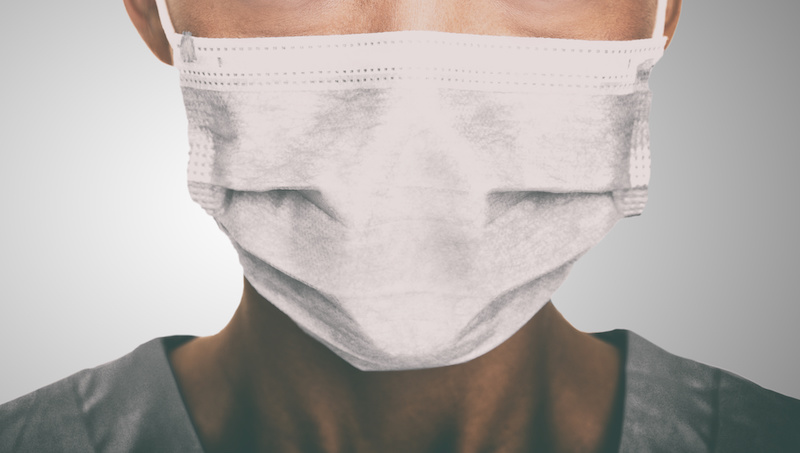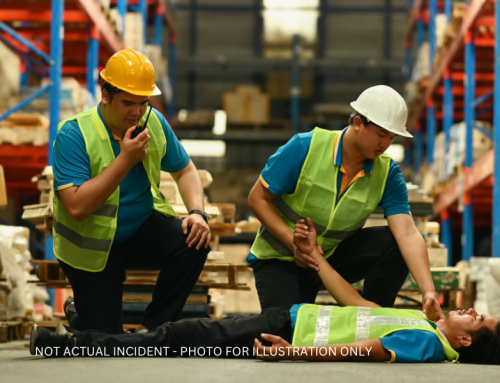The development and spread of the communicable disease, Coronavirus (COVID-19), has raised a range of concerns for people in and out of the workplace. Many employers, particularly with staff working in high public contact roles, may have health and safety obligations to prevent the spread of the virus through their workplaces.
Recently, the World Health Organisation (WHO) released a guide to highlight the requirements for employers to play a part in limiting the spread of the disease.
Outside of the moral duty to prevent the spread of the disease, employers may also have legal obligations in respect of maintaining the health and safety of employees that could be potentially exposed to the disease.
These obligations have existed under Australian workplace health and safety legislation for some time. They extend not only to Coronavirus (COVID-19) but to a broad range of communicable diseases in the workplace. Appreciating that the onset of a communicable disease in the workplace can have significant consequences for both personnel and the continuity of the business operation is a first step in the journey to meeting obligations.
While we don’t want to sound alarmist, we believe that businesses and organisations should have an effective communicable disease policy that:
- Contributes to overall Governmental efforts in minimising the spread of the disease;
- Considers and assesses the potential risk of exposure to personnel in the business or organisation;
- Provides a considered approach to mitigating the effects of an outbreak of the disease on the business operations;
- Ensures that staff who contract the disease are not stigmatised and discriminated against for contracting the disease;
- Plans for a potential outbreak and has strategies in place to ensure business continuity should this occur.
So what should my business or organisation actually do to prepare for a Coronavirus (COVID-19) Outbreak?
Firstly, as a matter of priority, we would recommend that your organisation consider the recommendations published by the World Health Organisation or any other regulatory authority where your business operates. Many of the recommendations provided by the WHO are simple and are not costly to implement.
Secondly, we’d strongly recommend that businesses or organisations assess the exposure risks for frontline customer-facing staff and those that are potentially immune-compromised.
People in higher-risk roles such as medical personnel, customer service roles, bus drivers, cleaners, face to face sales personnel or even those working in venues where a significant number of people may gather.
Venues like airports, shipping and ferries, transit stations, churches, exhibition centres, shopping centres, sporting arenas, casinos or restaurants that can have a large number of public gather may be considered a higher risk for spread of the disease
We understand that the probability of the Coronavirus (COVID-19) to adversely affect vulnerable people in the workplace is high. Employees who have chronic medical conditions, particularly those that have immune-related conditions should be considered a priority for exposure minimisation.
Coronavirus in the workplace – exposing workers to the disease
You simply wouldn’t place a worker who is immune-compromised into a high-risk high exposure potential role. It not only may have significant negative outcomes for the employee but, as an employer, you may have failed your obligations under workplace health & safety legislation if the worker contracted a disease at work and subsequently died from the illness.
Thirdly we’d strongly recommend that your business implement a communicable disease policy and plan (if you haven’t already) taking into account factors like:
- Types of communicable disease that affect may the business;
- What types of protection strategies you might use (including PPE);
- What types of communication and training you will use to inform staff, how do you prevent the spread of misinformation;
- What might be the additional cleaning requirements for facilities and staff;
- Examine ways in how you can minimise exposure for all staff;
- What will be the employees’ rights if the contract the disease? (See Fair Work Commission Guidelines)
- Address work from home or telecommuting requirements;
- Minimising employee to employee or employee to customer contact through staggered shift arrangements or flexible working;
- Cutting back on non-essential work-related travel;
- Self-exclusion requirements for personnel showing flu-like symptoms;
- How you might manage increased absenteeism in a time of crisis;
- What to do if an employee becomes sick at work;
- Provision of information following an exposure including policies around leave…remembering if the disease was clearly contracted at work then there may be workers compensation issues to be managed;
- Worker Privacy;
- How and who will liaise with Government authorities;
Finally, by considering the effects of a communicable disease from both your supply chain and customers perspectives you can ensure that your business continuity risks are managed to some extent.
COVID-19 takes us into unchartered territory
While many businesses and organisations have seen outbreaks of communicable diseases before, we have seldom seen one that spreads as easily and sustainably in the community as Coronavirus (COVID-19).
Regulators, employers, employees and workers compensation insurers are essentially entering into somewhat unchartered territory when it comes to the Coronavirus (COVID-19) and the legal implications that surround contracting a potentially life-threatening disease through the course of employment.
Despite the unchartered territory, the regulatory obligations to provide a safe and healthy workplace for employees irrespective of the hazards encountered are clear and we should appreciate that these obligations extend to a broad range of communicable diseases including COVID-19, measles, HIV, Chicken Pox & Shingles, Whooping Cough, Q fever, Influenza and many others.
Understanding how to meet these obligations by preventing employees from contracting the disease at a workplace is an important consideration for all employers.
This week the WHO stated “Employers should start doing these things now, even if COVID-19 has not arrived in the communities where they operate. They can already reduce working days lost due to illness and stop or slow the spread of COVID-19 if it arrives at one of your workplaces.”
If you need assistance in planning your workplace safety response to Coronavirus COVID-19 or other communicable diseases, we’d love to help. Safetysure Brisbane provides leading health and safety consultant services to a range of businesses to mitigate risk and achieve safe and productive working environments.







Leave A Comment